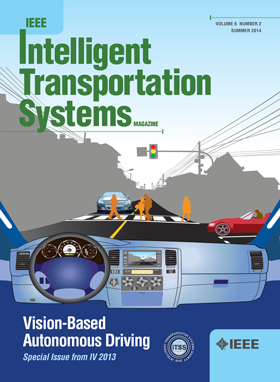Vehicle Cooperative Positioning With Tightly Coupled GNSS/INS/UWB Integration Based on Improved Multiple Fading Factors and Adaptive Cost Function
IF 8.4
1区 工程技术
Q1 ENGINEERING, CIVIL
IEEE Transactions on Intelligent Transportation Systems
Pub Date : 2025-06-13
DOI:10.1109/TITS.2025.3575812
引用次数: 0
Abstract
Cooperative positioning technology based on multi-vehicle information fusion is essential for advanced applications in intelligent transportation systems (ITS). The integration of global navigation satellite systems (GNSS), inertial navigation system (INS), and ultra-wideband (UWB) technology holds significant promise for enhancing the continuity and reliability of vehicle cooperative positioning. In tightly coupled GNSS/INS/UWB integration, the tolerance against measurement outliers and state model perturbations is pivotal for fulfilling the specific requirements of critical ITS applications. To optimize the comprehensive performance of vehicle cooperative positioning under uncertain sensor observation environments, this paper proposes a robust multiple fading factors unscented Kalman filtering (RMFUKF) algorithm based on adaptive cost function. The proposed solution incorporates Huber M-estimation with an adaptive tuning strategy to perform measurement-specific outliers processing. Furthermore, the improved multiple fading factors based on an exponential weighting method are implemented to mitigate the effects of dynamic model mismatches. Experimental results from vehicular field experiments demonstrate that the proposed RMFUKF scheme significantly improves the robustness and adaptive performance of vehicle cooperative positioning under unpredictable, real-world operating conditions.基于改进多重衰落因子和自适应成本函数的GNSS/INS/UWB紧密耦合集成车辆协同定位
基于多车信息融合的协同定位技术是智能交通系统先进应用的基础。全球卫星导航系统(GNSS)、惯性导航系统(INS)和超宽带(UWB)技术的融合对于提高车辆协同定位的连续性和可靠性具有重要的前景。在紧密耦合的GNSS/INS/UWB集成中,对测量异常值和状态模型扰动的容忍度对于满足关键ITS应用的特定要求至关重要。为了优化不确定传感器观测环境下车辆协同定位的综合性能,提出了一种基于自适应代价函数的鲁棒多衰落因素无气味卡尔曼滤波(RMFUKF)算法。提出的解决方案将Huber m估计与自适应调整策略相结合,以执行特定于测量的异常值处理。在此基础上,实现了基于指数加权法的改进多重衰落因子,以减轻动态模型不匹配的影响。车辆现场实验结果表明,提出的RMFUKF方案显著提高了车辆协同定位在不可预测的实际操作条件下的鲁棒性和自适应性能。
本文章由计算机程序翻译,如有差异,请以英文原文为准。
求助全文
约1分钟内获得全文
求助全文
来源期刊

IEEE Transactions on Intelligent Transportation Systems
工程技术-工程:电子与电气
CiteScore
14.80
自引率
12.90%
发文量
1872
审稿时长
7.5 months
期刊介绍:
The theoretical, experimental and operational aspects of electrical and electronics engineering and information technologies as applied to Intelligent Transportation Systems (ITS). Intelligent Transportation Systems are defined as those systems utilizing synergistic technologies and systems engineering concepts to develop and improve transportation systems of all kinds. The scope of this interdisciplinary activity includes the promotion, consolidation and coordination of ITS technical activities among IEEE entities, and providing a focus for cooperative activities, both internally and externally.
 求助内容:
求助内容: 应助结果提醒方式:
应助结果提醒方式:


